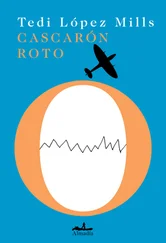Mark Mills - Amagansett
Здесь есть возможность читать онлайн «Mark Mills - Amagansett» весь текст электронной книги совершенно бесплатно (целиком полную версию без сокращений). В некоторых случаях можно слушать аудио, скачать через торрент в формате fb2 и присутствует краткое содержание. Жанр: Старинная литература, на русском языке. Описание произведения, (предисловие) а так же отзывы посетителей доступны на портале библиотеки ЛибКат.
- Название:Amagansett
- Автор:
- Жанр:
- Год:неизвестен
- ISBN:нет данных
- Рейтинг книги:5 / 5. Голосов: 1
-
Избранное:Добавить в избранное
- Отзывы:
-
Ваша оценка:
- 100
- 1
- 2
- 3
- 4
- 5
Amagansett: краткое содержание, описание и аннотация
Предлагаем к чтению аннотацию, описание, краткое содержание или предисловие (зависит от того, что написал сам автор книги «Amagansett»). Если вы не нашли необходимую информацию о книге — напишите в комментариях, мы постараемся отыскать её.
Amagansett — читать онлайн бесплатно полную книгу (весь текст) целиком
Ниже представлен текст книги, разбитый по страницам. Система сохранения места последней прочитанной страницы, позволяет с удобством читать онлайн бесплатно книгу «Amagansett», без необходимости каждый раз заново искать на чём Вы остановились. Поставьте закладку, и сможете в любой момент перейти на страницу, на которой закончили чтение.
Интервал:
Закладка:
As for the whaleboat house, the third side of the open yard formed by the buildings, that had been Rollo’s contribution to their joint enterprise. For as long as anyone could remember it had stood, sleek and low, just back from the beach at the end of Atlantic Avenue. If Conrad had offered to take Rollo on simply as a member of his crew, it would still be standing there. But he hadn’t; he had proposed that they go into business together—a true partnership, equal shares, riding out the highs and the lows together, the good years and the bad.
After Ned Kemp had overcome his initial reservations and consented to the venture, he insisted that Rollo bring something to the table. Conrad was, after all, providing the dory, the cat-boat, and a whole bunch of other gear. Rollo had never wanted for anything, but nor had he ever received payment for his labors. He was housed, clothed, fed and cared for, and in return he did what was asked of him—working the farm, crewing on the Ariadne during the bunker season, dragging for yellowtail flounder in fall, codfishing off the ocean beach in winter. There was no injustice in this, it made sense to everyone, not least of all Rollo, and it worked. Or rather, it had up until then.
When Conrad refused to accept a cash payment from Captain Ned, Rollo chipped in his only asset, his inheritance, gifted him ahead of time by his father. It was never in doubt that Rollo, of all the brothers, would be the one to inherit the whaleboat house. Since childhood he had been drawn to the building and its mysterious contents, dusty and disused, his fascination fueled by the thrilling tales of derring-do learned at the knee of his grandfather, Cap’n Josh.
By the age of ten Rollo had become the official repository of all matters relating to the Kemps’ long association with inshore whaling off the East End. He was a storehouse of anecdotes, too young to detect the whiff of embellishment clinging to them. Had a right whale, a notoriously sluggish creature, really dragged six men in a twenty-eight-foot boat two miles out beyond the bar in as many minutes?
Rollo knew of every rally made by the Kemps off the ocean beach. He knew who had first sighted the whale, who had raised the weft above their house on Bluff Road, and who had crewed for them. He could tell you the sea and weather conditions at the time, as well as the exact course taken by each whale after it was fastened on to. And he could describe in detail the nature of each kill, clean or messy, depending on the accuracy of the man administering the coup de grâce with the lance, and the ferocity of the exhausted animal’s death flurry.
His accounts only became sketchy when it came to the contribution made by the other crews who had participated in the rallies. Inshore whaling was, necessarily, a collective affair. How else to tow sixty tons of dead whale ten miles back to shore in a heaving sea? Rollo wasn’t to blame for the omissions in the stories he told. He was only repeating his grandfather’s words, and Cap’n Josh had never been renowned for the high regard in which he held rival whalemen. At best he had a grudging respect for the Van Duyns who worked the other end of the village. This diminished by degrees the further west one headed. The East Hampton crews were barely worthy of consideration or comment, and as for the ‘Wainscott dumplings’, as he called them, well, they were fit only for ridicule, putting to sea in those clumsy, oversized dories of theirs.
It was all bluster, of course. Any man who has thrust iron into a creature a thousand times his own size is inextricably bound to others who have done the same.
Conrad and Billy were eleven years old when Rollo first shared with them the secrets of the whaleboat house. It was a Friday, after school, a sunny, windblown afternoon, with choppy waves thumping against a stunt beach, and they’d had to clear the sand banked up against the doors before they could enter.
The whaleboat held center stage, like a dusty sarcophagus in some ancient tomb. Around it lay an armory of weapons to ensnare a boy’s imagination—harpoons, lances, axes, grapnels, and blades of every description for cutting into blubber. But Rollo directed their attention to the boat itself. He made them trace the sheer lines of its white pine hull with their fingertips. He pointed out the sharp stern end, explaining that the ability to retreat rapidly without turning was vital during the whale’s flurry, when a crashing blow from the vast flukes could tear the boat and its occupants apart. He showed them the wooden tholepins trimmed with leather to deaden the sound of the oars, of approaching doom; and he demonstrated how, in time-honored tradition, the boat-steerer switched places with the boat-header in order to deliver the death-stroke.
Most impressive, though, was the change in Rollo. What had happened to the nervous, downturned gaze, the halting speech, the struggle to put names to all but the most commonplace objects? He spoke with a confidence he had never once displayed in the classroom, plucking technical terms from the air at will.
Conrad and Billy must have passed the test, for they were invited to return time and time again. Together they re-enacted the stories handed down by Cap’n Josh to his grandson, Rollo standing tall and proud in the stern, barking orders to his depleted crew of two—‘Slack back!’…‘Hold water!’…‘Spring ahead!’…‘Stern all!’—before hurling the harpoon into a big burlap sack of hay conscripted to play the whale. With time, willing crew members were found to man the other oars. Then numbers climbed beyond the capacity of the boat, and tales of inshore rallies made way for grander, more epic yarns of deep-sea, round-the-horn whaling that could accommodate a larger cast of characters.
There was never any shortage of adventures to be played out. As a young man, Cap’n Josh had sailed from Sag Harbor on the ocean-going whaleships, the last of three generations of Kemps to do so. He had made three trips in all, visiting both frosty ends of the globe, rising through the ranks from pimpled greenhorn to chief harpooner. When gas lighting finally put paid to the demand for whale blubber, he returned to the wife and young family he hardly knew, a respected man, and a rich one.
Like others in Amagansett and East Hampton fortunate enough to have survived their time aboard the whaleships, he’d had to content himself with sporadic rallies off the ocean beach in late winter. After the speedy finbacks and hostile sperm whales of the southern oceans, the local right whales—long on blubber and bone, short on speed—made for easy quarry. Then suddenly, some years before the Great War, the whales disappeared. Inshore whalemen up and down the coast hung up their harpoons. All the gear was stowed away, forgotten.
The Kemps’ boat hadn’t seen the light of day for almost twenty years when Rollo, Conrad, Billy and the pack of other local kids first heaved it out of the whaleboat house under the approving gaze of Cap’n Josh. The building itself was to double as a whaleship, its boxy construction not unlike the square-sterned, blunt-bowed vessels that used to clog the quayside in Sag Harbor—‘Built by the mile and cut off in lengths as you want ‘em,’ Cap’n Josh had said, before dispatching two men into the mastheads to keep watch for whales.
‘Ah blow-O!’ they hollered from the roof.
‘Where away?’
‘Sperm whale, two points off the weather bow, sir, four miles away.’
‘Stand by to lower.’
And so it continued, Cap’n Josh marshaling his troupe of young actors, feeding them their lines, directing the chase of a particularly feisty sperm whale encountered in the South Pacific, which, once ironed, had proceeded to strip all three hundred fathoms of manila line out of the boat before dragging it on a heart-stopping Nantucket sleigh ride (Cap’n Josh rocking the boat fiercely to mimic the effect of it crashing over the waves). The whale had fought till the last, capsizing the boat on two occasions before finally expiring.
Читать дальшеИнтервал:
Закладка:
Похожие книги на «Amagansett»
Представляем Вашему вниманию похожие книги на «Amagansett» списком для выбора. Мы отобрали схожую по названию и смыслу литературу в надежде предоставить читателям больше вариантов отыскать новые, интересные, ещё непрочитанные произведения.
Обсуждение, отзывы о книге «Amagansett» и просто собственные мнения читателей. Оставьте ваши комментарии, напишите, что Вы думаете о произведении, его смысле или главных героях. Укажите что конкретно понравилось, а что нет, и почему Вы так считаете.











